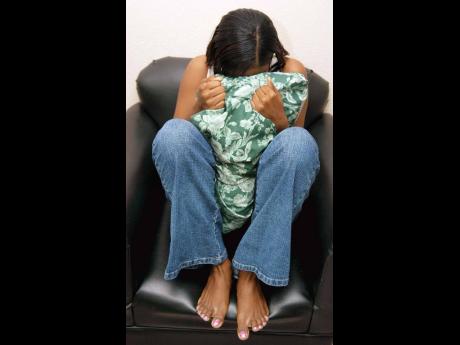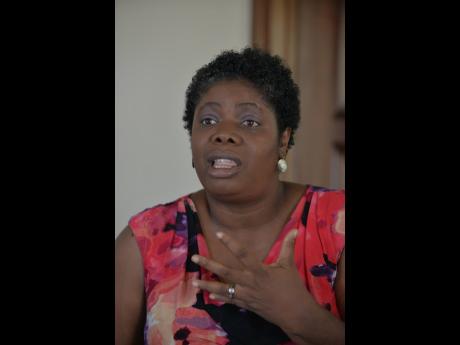300 registered sex offenders in Jamaica
Concerns that low conviction rate makes many fall through cracks
Although the number of convicted sex offenders registered in Jamaica has almost doubled over the last three years, according to new data, specialists believe it still doesn’t tell the true picture.
They fear that the low rate of conviction for sex-related crimes has allowed an untold number of sexual predators to fall outside the regulatory framework established to monitor them.
There are 331 persons on the Sex Offender Registry, a near 100 per cent rise when compared with the 168 that were listed in February 2018, according to the latest statistics released by the Department of Correctional Services (DCS).
The database is managed by the DCS.
Since the start of this year, 25 convicted sex offenders have been added to the register, according to the DCS statistics obtained through an Access to Information request by The Sunday Gleaner.
Forty were added last year, 59 in the 2019, and 39 the year before that.
For political scientist Dr Leanne Levers, these figures seem “incredibly low” given the number of sexual offences recorded in Jamaica annually.
“And we know that globally, as well as in Jamaica, approximately 25 per cent of women experience some form of abuse in their lifetime,” she said.
However, Levers said she was not surprised by the figures given the dearth of resources to tackle crime and the myriad issues plaguing the justice sector.
Between January 1 and last Tuesday, 267 cases of rape were recorded across the 19 police divisions islandwide, a 31 per cent reduction when compared to the corresponding period last year, according to the latest figures compiled by the Jamaica Constabulary Force.
The Home Circuit Court, which covers Kingston and St Andrew, will have 267 sex-related cases listed – including 160 for rape and 71 for persons accused of having sex with a minor – when it resumes sittings next month.
CONVICTIONS AND ACQUITTALS
There were 40 convictions and 20 acquittals for sexual offences over the last two sessions of the Home Circuit Court, held between January and July this year, data from the Office of the Director of Public Prosecutions show.
“I think the low rate of conviction is what allows sex offenders to fall through the cracks,” Levers asserted.
She believes, too, that socio-cultural norms in Jamaica that encourage sexual violence, particularly among young men and women, are among the most “problematic” aspect of what allows sex offenders to fall outside of the monitoring regime established in law.
The disclosure by the DCS comes amid signs of growing support within the Andrew Holness-led Government for calls to make the sex offender registry open to the public.
“We have been discussing it for some time, and we need to take a decision,” one senior government insider told The Sunday Gleaner while acknowledging that there was no consensus on the long-debated issue.
The sex offender registry was established through the enactment, in October 2009, of the Sexual Offences Act.
The legislation stipulates that a person convicted for specified offences and who has not been exempted by a judge should be registered as a sex offender after their conviction is recorded either by the Supreme Court, the Circuit Court, or the Court of Appeal.
Incest, rape, marital rape, sexual touching or interference, sexual grooming of a child, sexual intercourse with a person under 16 years old, grievous sexual assault, and indecent assault are among the specified offences listed in the law.
However, according to the DCS, only the police, persons engaged in professional counselling of sex offenders, persons managing educational institutions where they are enrolled or seeking to be enrolled, persons managing facilities that treat vulnerable persons, as well as prospective employers and employees of sex offenders are allowed access to the register.
In March last year, Attorney General Marlene Malahoo-Forte threw her support behind a call by the head of the Child Protection and Family Services Agency (CPFSA) for a more transparent sex offenders’ registry.
“Placing a restriction on who can access the registry may defeat its purpose,” Malahoo-Forte said during an interview with The Gleaner in March last year.
AMENDMENTS TO ACT IN T&T
In February last year, the Government of Trinidad and Tobago announced amendments to its Sexual Offences Act that will allow citizens to access, via a website, details about convicted sex offenders, including their names, addresses, photographs, and their crimes.
Giving the public access to the sex offender register in Jamaica would allow citizens to make smarter decisions to better protect themselves and their families, reasoned women’s rights advocate Nadeen Spence.
“The sex offender registry in Jamaica doesn’t make any sense given the inaccessibility,” she said, echoing the views of other lobbyists.
Proponents of the existing system have argued that making the register public further stigmatises and punishes individuals who have paid their debt to society and are deserving of a second chance.
“They are right, but one of the things that we don’t have enough information on is whether people are offending more than once. That information needs to be out in the public for me to be assured that somebody has gone to prison, served some time for an offence, comes out and is no longer a threat,” said Spence.
However, according to Levers, research has shown that sex offender registries – like the one operated in Jamaica – are “largely ineffective” if they are not “context-specific”.
“So as it stands, registers that are not risk-based, that do not provide any indication of the risk the specific offender poses, that do not provide a series of criteria offenders have to abide by depending on the crime … is largely ineffective or counterproductive,” she argued.


